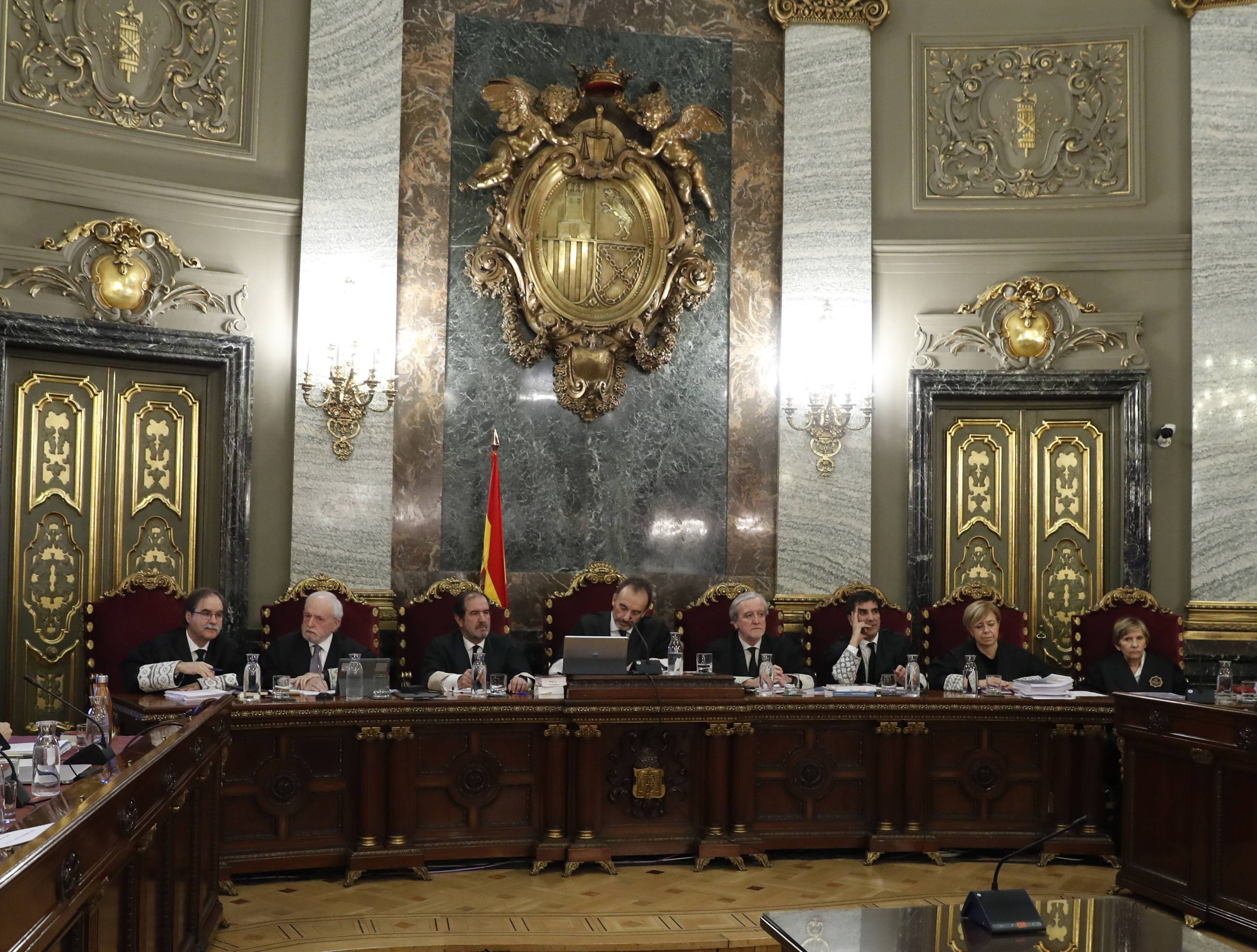"Very worrying" alerts are starting to build up among the notes from the international observers following the Catalan independence trial in the Supreme Court, according to Iñaki Rivera, director of the Observatori del Sistema penal i els Drets Humans (the University of Barcelona's human rights and penal system observatory) and member of the specially formed International Trial Watch.
Speaking to El Nacional, the human rights expert questions head judge Marchena's criteria for considering the relevance or not of some questions. "The presiding judge, on repeated occasions, has denied some parties the possibility of questioning witnesses proposed by another party on different events," he says. This was the case, for example, during the questioning of the speaker of the Catalan Parliament, Roger Torrent, who couldn't be asked about the 20th September protests, despite the fact he was at the economy ministry that day, because he had been summonsed by the prosecution as the current speaker.
"Something similar happens with the refusal (always to the defence) to exhibit documents and videos. That's very serious in procedural terms given that the credibility of the witnesses cannot be rigorously verified if their statements cannot be confronted with other questions, with the exhibition of documents or other elements, realising the principle of contradiction," he said.
The argument that this will take place in the evidence phase cannot be accepted, in this expert's view, as the witnesses will not then be present in court to be asked about any potential contradictions. Rivera insists that this is especially frequent when the topic of the police violence against voters during the referendum comes up. He warns that it is "putting in doubt the right to defence, equality of arms and, in short, the right to a fair trial provided in article 6 of the European Convention on Human Rights".
Criminal records
This isn't his only criticism over the handling of the trial. Rivera finds it "surprising" that presiding judge Marchena should have forgotten on Monday to ask Diego Pérez de los Cobos, the Civil Guard colonel who headed the police operation against the referendum, if he had ever prosecuted, part of the standard opening questions defined in law he had asked all the other witnesses.
When he returned on Wednesday to continue his testimony, Pérez de los Cobos was finally asked this question. "Yes, I was prosecuted on one occasion", was his answer, "and acquitted". He gave no more details. Rivera noted this contrasted with other witnesses like former Catalan president Artur Mas who explained he'd been prosecuted over his role in the 2014 unofficial independence referendum. The colonel was prosecuted and acquitted in 1992 for torturing a prisoner accused of belonging to ETA.
Nor was the observer satisfied with the response to the same question from the former director of the Spanish National Police in Catalonia Sebastián Trapote. "It seems he's forgotten the death of the worker Herrero in 1974," said Rivera. Trapote was accused of shooting José Luis Herrero in the back while he was being arrested, killing him, but the case was dismissed under pardon laws later that decade.
Trivialisation of violence
Also when it comes to the witnesses, the observers are reportedly worried about the way De los Cobos and other senior police and political officials dealt with the "concept of violence". Specifically, Rivera denounces the "absolute disdain" of treating "the exercising of fundamental rights, freedom of expression and protest as violent actions which used children and older people as human shields". He describes this as a "denial or trivialisation of the police violence deployed on 1st October".
Other concerns
The expert's other concerns include communication between witnesses or them following those who have preceded them and the quantity of questions on the functioning of the Catalan Parliament which he says "reveal the fundamentally political character of the trial". In the case of watching other testimony, he says "that's been decisive when each police subordinate has appeared on a different day to [when their superiors had]".
Finally, he is worried about the "extreme tiredness" of the prisoners from very long days in court, with an hour and a half each way to and from prison before and after. When they arrive, "already gone 10pm, to a cold dinner which is waiting for them in the empty canteen with few hours of rest". "The accumulated tiredness is now becoming very evident", he said, for example, "especially this Monday and Tuesday, [I've seen them] holding their heads in their hands, sitting badly and half lying down some of them on their benches behind their lawyers".

